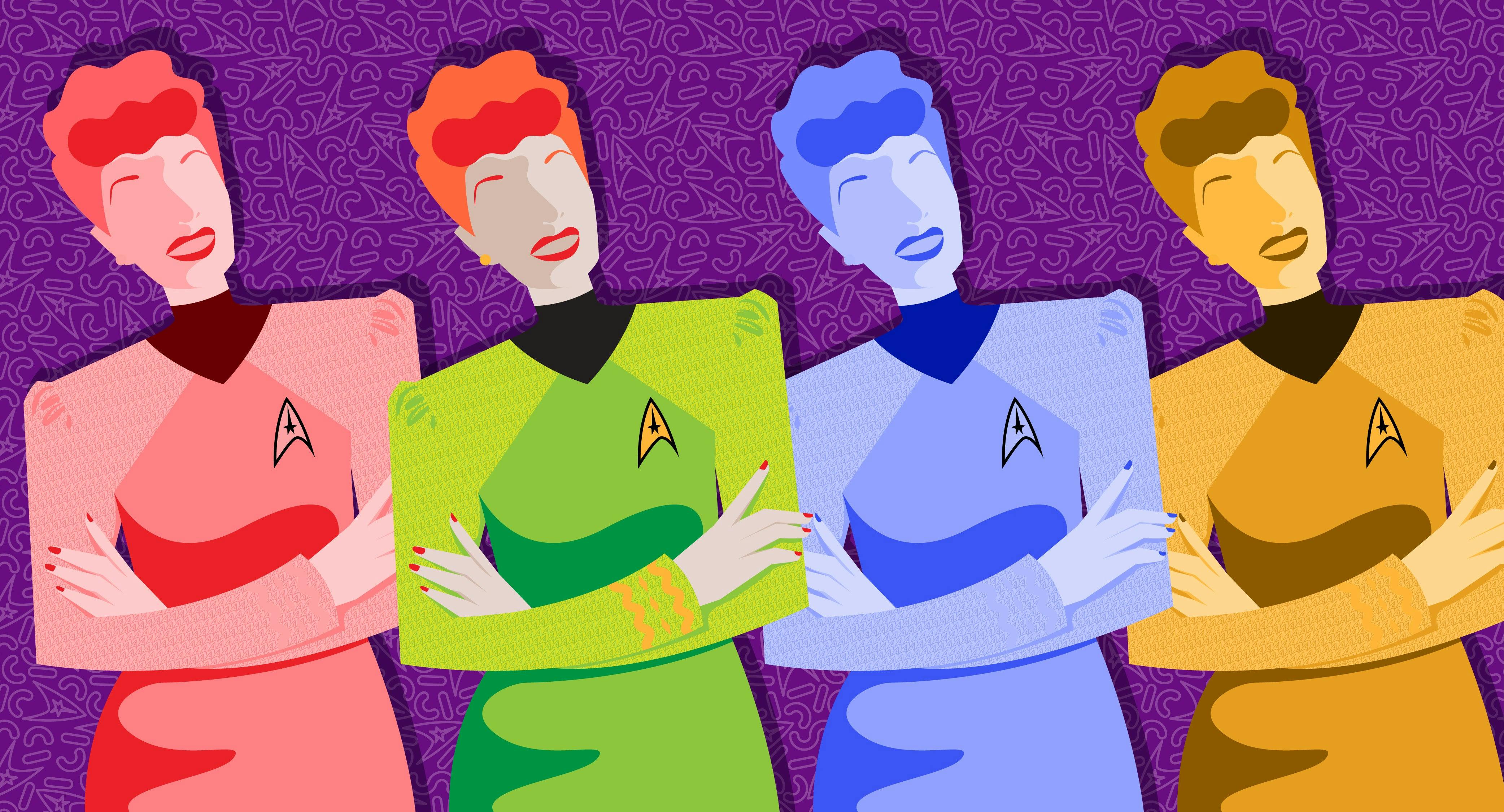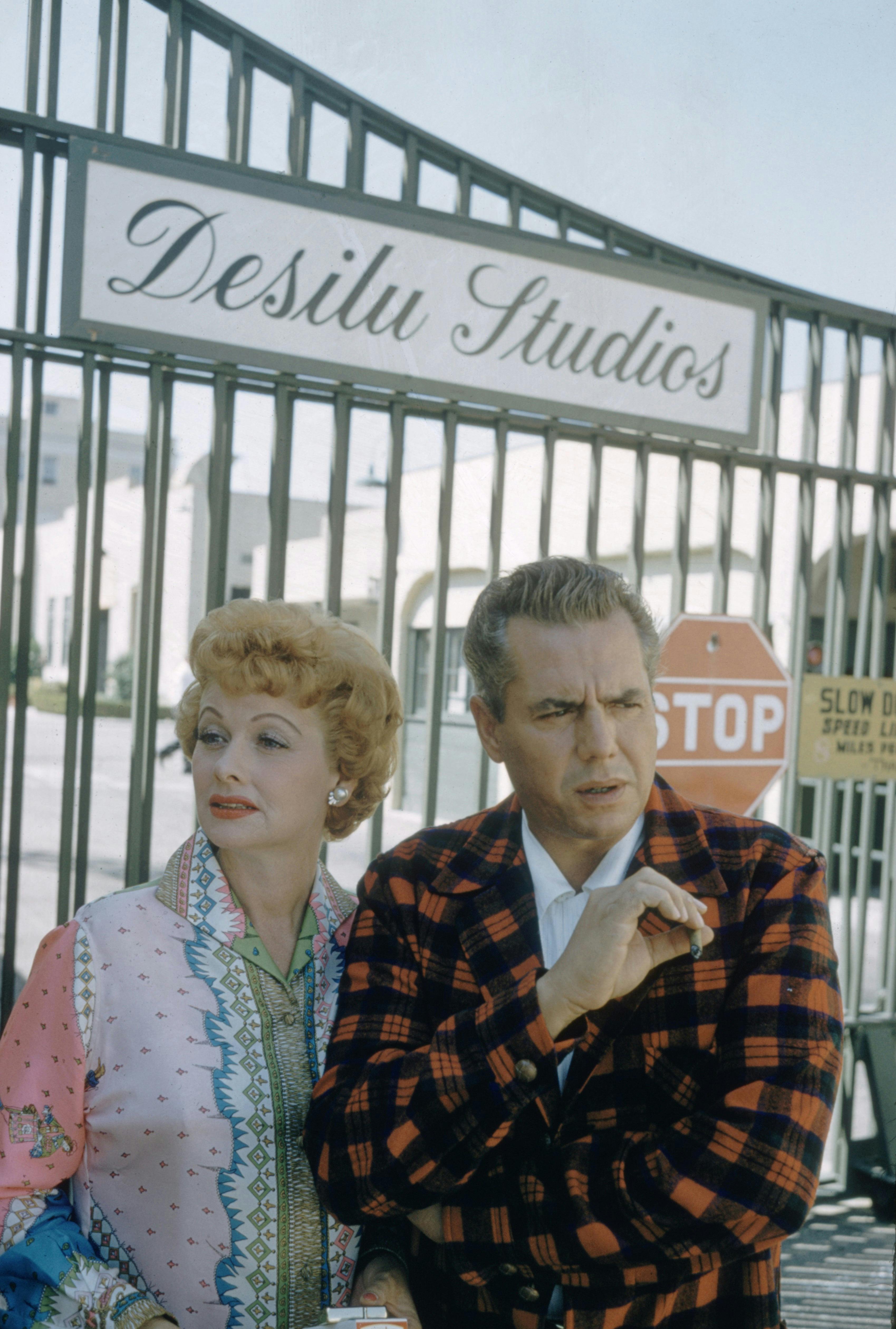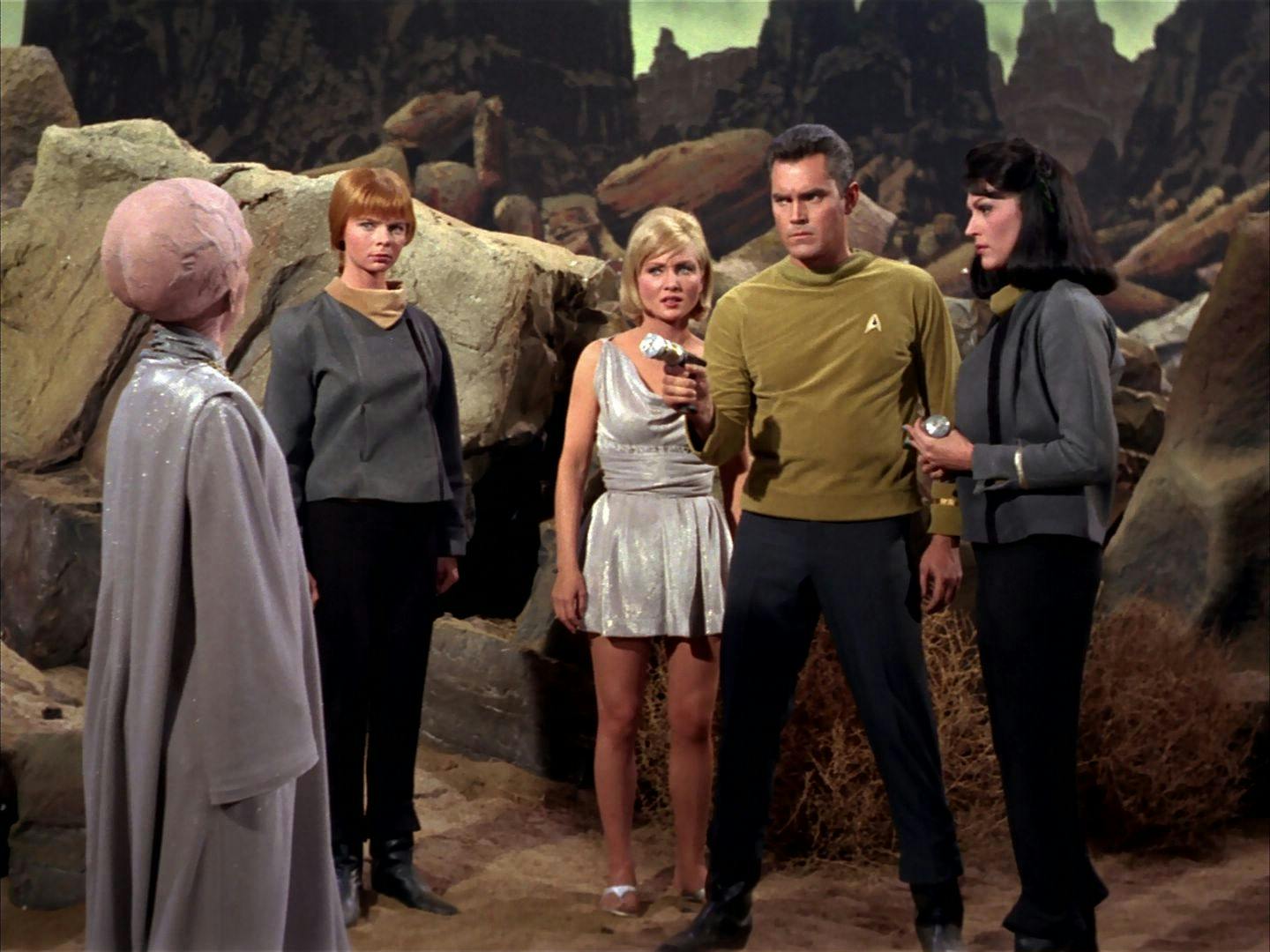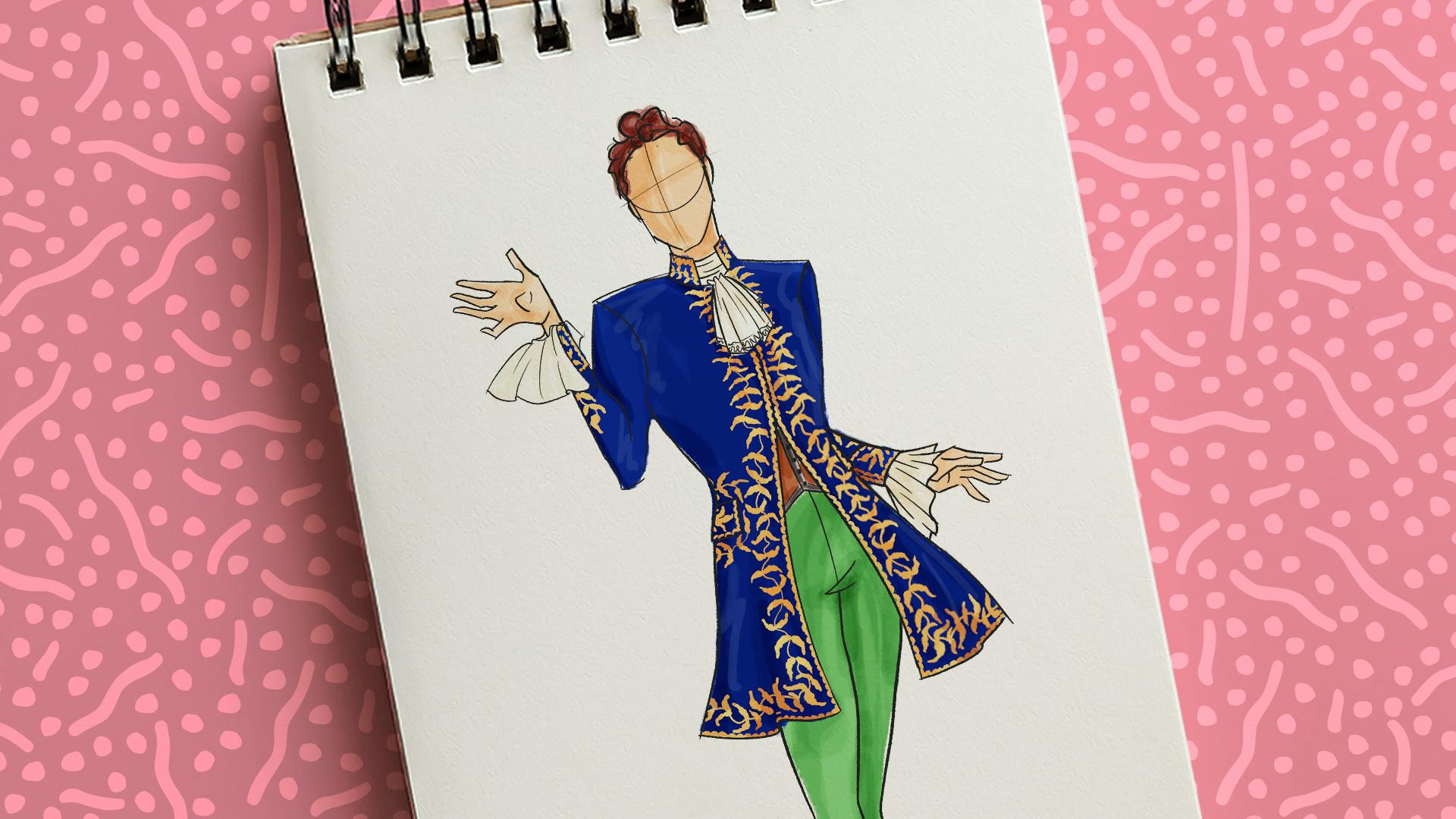Published Aug 6, 2023
How Lucille Ball Helped Star Trek Become a Cultural Icon
The actress and her studio helped bring The Original Series to life.

StarTrek.com
The journey to get Star Trek: The Original Series on television was a long and arduous one, but series creator Gene Roddenberry had help from an unlikely heroine. Without the help of this woman and her studio, the franchise may have stalled and never seen the light of day. And so today, on the anniversary of her birthday, let's think fondly of the incomparable Lucille Ball.
Ball is, of course, most familiar to the world as the comedic star of I Love Lucy, the show she produced and starred in alongside her husband Desi Arnaz. The success of the sitcom, which ran for six years, allowed her and her husband to purchase their own studio, Desilu Productions. When Arnaz and Ball divorced in 1960, she took over the studio herself, making her one of the most powerful women in Hollywood.

Lucille Ball and Desi Arnaz outside the gates of Desilu.
Getty Images
Four years later, Roddenberry came to Desilu with an idea for a pilot that would grow into Star Trek. Ball bought the series, even if she didn’t quite understand it; allegedly, she thought the title referred to a group of traveling USO performers during WWII. Author Marc Cushman wrote of the actress in Inside Star Trek: The Real Story that, "She may have initially misunderstood the Star Trek concept, but TV's ‘wacky redhead,’ known for playing a character that had always had a harebrained scheme up her sleeve, had learned well from Desi Arnaz. He had been called crazy many times by Industry insiders, but always proved his critics wrong.”
Still, she supported his space western vision, even as some board members were resistant to the idea. It was thanks to her that “The Cage” was produced in the first place. Ball stood by the show through two pilots being shot and a massive budget, and the rest is history. A studio accountant named Edwin "Ed" Holly is on the record as saying "If it were not for Lucy, there would be no Star Trek today."

"The Cage"
StarTrek.com
Without the support of Ball, “The Cage” would have been the end of Star Trek. Second pilots are rarely commissioned, not without someone with some power backing them up. NBC could have passed on Star Trek overall, but Ball, who believed in the project, stepped in, and saved the day in a move that would’ve made every Starfleet captain proud. The comedian is one of many talented women who are among the many reasons that the Star Trek has endured into the 21st Century. Ball is simply one of the first.
Her belief in Star Trek is why we have Star Trek as it stands today. Ball was more than just a comedian and a beloved television icon, she was a savvy producer who deserved credit for her work behind the scenes, including helping to achieve Roddenberry’s vision. For this, we can all love Lucy.
Stay tuned to StarTrek.com for more details! And be sure to follow @StarTrek on Facebook, Twitter, and Instagram.





